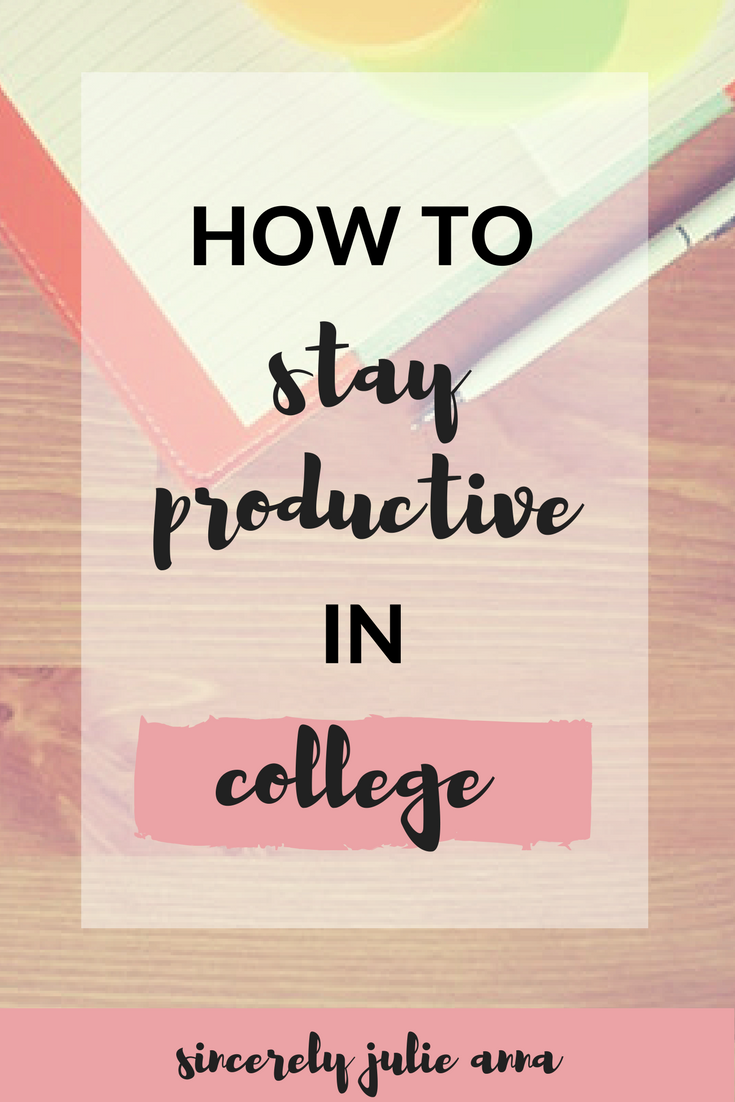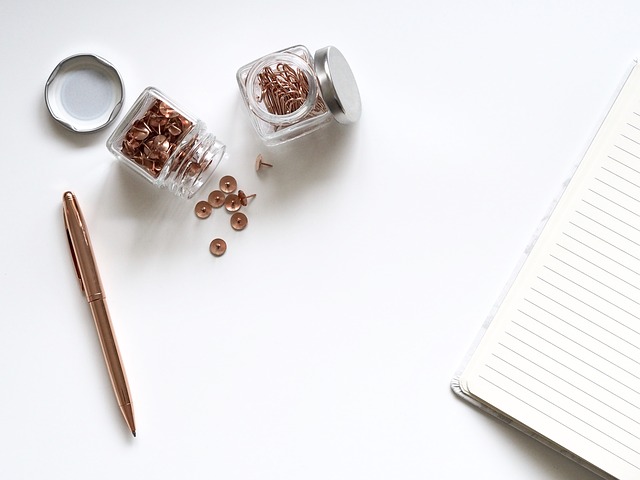Last May I graduated college, and I had quite the reputation for being the one that seemed to be doing 7000 things at once. Granted, I needed to be that way because I did my degree in 3 years instead of 4. But over time, my need forced me to learn how to be better with my time and get more done. While I was still far from perfect, I learned quite a bit on how to handle all of my schoolwork on top of jobs, extracurriculars, and more. Here’s what I did to keep going and stay productive.
Disclosure: The following page contains affiliate links. If you choose to go through these links and make a purchase I will receive a commission at no extra cost to you. Thank you for your support!
Plan, plan, plan.
One of the nice things about my college classes were that they were very predictable in terms of routine assignments and exams. This made figuring out my week easier.
Every Friday afternoon, at the end of a long week, I’d sit down and plan for my next week. My academic advisor recommended that I do something to alleviate stress on Fridays as well, so I got into the habit of decorating my planner simultaneously (which is how I got into bullet journals today). I am the type that needs everything planned out on paper, and having my whole week planned ahead gave me less to worry about.
As simple as it sounds, making a to-do list for seven days in advance isn’t that easy. In fact, I only started to get the hang of it my last semester. My to-do lists earlier on failed constantly. I’d have too much listed, have to move things around constantly, and could never successfully keep one task set in stone. Here’s what I did to fix this:
-
Categorize each day of the week.
Depending on what days you have classes, work, and activities, certain days may be busier than others. During my last semester, on Tuesdays, I had class, work, a club meeting, on-campus volunteer work, and off-campus volunteer work. But I also had quizzes every Wednesday in my hardest class! That being said, I needed to schedule studying for that course Monday nights.
Start by figuring out how many productive hours a day you have to complete work. And when I say productive, don’t count a half-hour break between classes. Figure out which days you have the least amount and the most amount of time. This way, you know which days you can schedule more work.
But don’t stop there! Take a look at your courses and when you typically have assignments due, labs, exams, or presentations. If one class has homework due every Thursday at midnight, you can structure your schedule to do that assignment every Sunday, for example.
Also be sure to start it in advance enough so you have time for office hours – especially if you will need to go multiple times!
-
Be careful about estimating the time it takes to complete an assignment.
Early on I feel as though most Computer Science majors went through this several times. We’d have a coding project, and assume that it wouldn’t take much time. To write a program, you type your code, hit compile to find errors, fix those errors, and then run the program. Then you’d test your program to see if it’s working as intended. You might also have some errors at runtime that need to be fixed. So here’s what the amateur programmer in us would typically do:
1. Assure ourselves, “We can do it!”
2. Write out our code, thinking “This is good code!”
3. Hit compile, with one simple error. No biggie.
4. Fix the error, compile again. 45 errors that give zero explanation to what the problem is.
5. Die a little bit on the inside.
6. Scramble to finish the project and end up turning in sloppy code.
7. Meet up with your friends who also did steps 1-6 and vow to never underestimate the time it takes to debug again.What’s the moral of the story? Be sure to give yourself plenty of time to complete assignments. They were made to challenge you, not be busywork.
But at the same time, when planning what you want to get done in a day, you need to know how much to schedule for yourself. So how can you do this? I liked to handle this by pairing shorter assignments with a large project. For example, I knew that my programming assignments would take some time, but responses to readings would not. So I would assign myself the smaller projects, giving me the rest of the day to work on the bigger project.
-
Give yourself plenty of room.
It’s really hard to find a space alone to study with no distractions. Things may also change. You may find out that your friends are studying for the same test as you are, but you planned to do that tomorrow. Maybe someone wants to take a study break and grab lunch with you. You could also get really stuck on something and not be able to hear from your professor about it until the following day. Things don’t always pan out the way you want to. And if you stuff yourself with things to do, you’ll stress yourself out if you don’t get every task done when you want to.
Remember to take breaks.
In my second semester, I took five classes (little did I know that I was going to take on much more)! I remember feeling constantly burned out because I wasn’t used to having to spend so much time on schoolwork yet. That’s when I had a friend teach me how to take breaks, and I started becoming more productive with my work. There’s two different kinds of breaks I would take, depending on why I was losing momentum.
The first type of break I would take if I was staring at a problem too long, and just could not get it. I wasn’t burned out from studying in general, it was just the topic that I couldn’t focus on anymore. So I’d take a break from that assignment and do something a little easier on the brain. When I’d go back to the original assignment, I’d have a fresh mind.
If I was burned out in general, I’d step away from my studies completely. I’d make sure to at least get outside, maybe take a walk and make a phone call. If I’m studying with a group we’d usually agree on a food break and stop at the campus center. At first, I’d be tempted to keep studying while we ate, but my friends would close my books. “Relax,” they’d say, “We’ll be prepared.”
They were right. Had I kept trying to study through my break, I wouldn’t have felt refreshed going back. While we may think sabotaging our own time to get work done is going to help us, I’d argue that it makes matters worse. Which leads me to my next point.
Sleep, eat, and take care of yourself!
You may ask yourself how this is a productivity tip, but I’m going to tell you why it is.
My first two years of college, I had random nights where I’d stay up very late working on assignments. Sometimes it wasn’t critical that I got them done then, but I’d stay up late anyway. I had other friends that would constantly be up every night, and could barely make it through classes or focus on anything.
My first semester senior year, I took seven classes. Yes, seven. I was also involved in a couple organizations, volunteered, worked, and was a mentor to first-year students. That same semester, I would not allow myself to study past 12:30 AM. I also prioritized getting up early to workout, which was something I wanted to guarantee I had for myself in my schedule.
That semester, I was more productive than I ever was, despite taking on more classes than usual and increasing my campus involvement. Why was this the case? To put it simply, I had the energy. I was well-rested and was able to focus in class, meaning I didn’t have to figure out what I learned later. I had fewer brain fogs trying to solve problems.
Be sure to make time for you. It will pay off!
Consider your ideal study environment, and make it a reality.
How do you think you would be most productive? For most of my friends, it wasn’t at their dorm room desk. Instead, it was out in a public space, where they’d be pushed to work a little harder.
Is something like this the case for you? If that’s the case, make it your reality. Get out of your dorm room and go to the library if that helps you. What else helps you? Lots of natural light? A whiteboard to work out problems? Friends, or solo? Make all of these things a reality.
When working with friends, be sure it is under the right circumstances. When I had a lot to get through, I would work with friends as serious as I was at that time. Otherwise, I found it okay to work in a more relaxed environment, knowing that just being around people forced me to work better and not laze off. Consider how you study with your friends, because this be both the biggest benefit and detriment to your studies!
Be prepared.
If I was going to be in the science building all day, I would have to make sure I had everything I needed. It’s so easy to go there to study, and then keep on needing things.
It’s cold. I need a jacket.
…
I want a snack.
…
I forgot to refill my water.
…
I’m tired. I want tea.
…
I left a book in my dorm.
Do not let yourself do this! Even though my campus was so small it takes so much time to make a trip to get something. Make sure you have everything you need and it will be less tempting to get up. It’s a very easy distraction to get up and go to the library cafe, but it ends up eating more time than you think. Which leads me to my next point.
Avoid distractions!
This can be really hard to do when you’re constantly in shared spaces, but be aware of what’s eating your time and how to stop it in the future. For a list of common distractions and solutions, check out this post!
The worst distraction by far is your phone. Keep it on Do Not Disturb and whitelist the people who may need to reach you. In fact, just having your phone on the table alone may tempt you and taking a “quick 30-second break” on it. Don’t let that happen!
Also be sure to prevent yourself from navigating away from your work while online. If you need to work on your phone or computer, you can also install several browser extensions or apps to keep yourself on task.
Consider what time of day you work best.
What time of day do you feel you’re most productive in? For me, this was the morning. So I would get up early and head to the science building and tackle my toughest work then. (Also, getting up early means securing a good study spot since nobody’s there!)
Try to take advantage of when you have the most energy to do work, and do your hardest work then. When you have less energy is a better time to tackle your easier assignments.
Don’t go into overdrive.
I’m going to end this post with something that I was never truly able to follow. I knew that my time at college was short, and I wanted to have as many experiences as I could. Part of me looks back and tells myself, well, you were able to do it all, right?
But another part of me knows that, by doing all those things, I lost other opportunities. I missed out on more than I realized at the time because I had this need to say yes. And by wanting to do it all, I had constantly put stress on my body and my mind. I know that doing my degree in three years was a result of financial need, and I had to take a lot of classes in a short time and work, but the rest was up to me. Aside from the stress, the quality of my work diminished.
If your semester is rough despite your efforts to stay organized, hardworking, and productive, take a look at your schedule. Is there anything you can do next semester to fix what you’re going through now?
Remember that it’s okay to say no. This is something that I always struggled with because I wanted to be involved and help others however I could. But know that your quality of work and well-being is more important. Take the time to address what is helping or hurting you in your studies and create an action plan. Whether you need to stop overcommitting, procrastinating, or ending up with half-finished assignments, let the time to change that be now.
I hope these tips have helped and inspired you to get through the semester! Is there anything that I missed that helps you stay productive? Let me know below.
Sincerely,
Julie Anna






